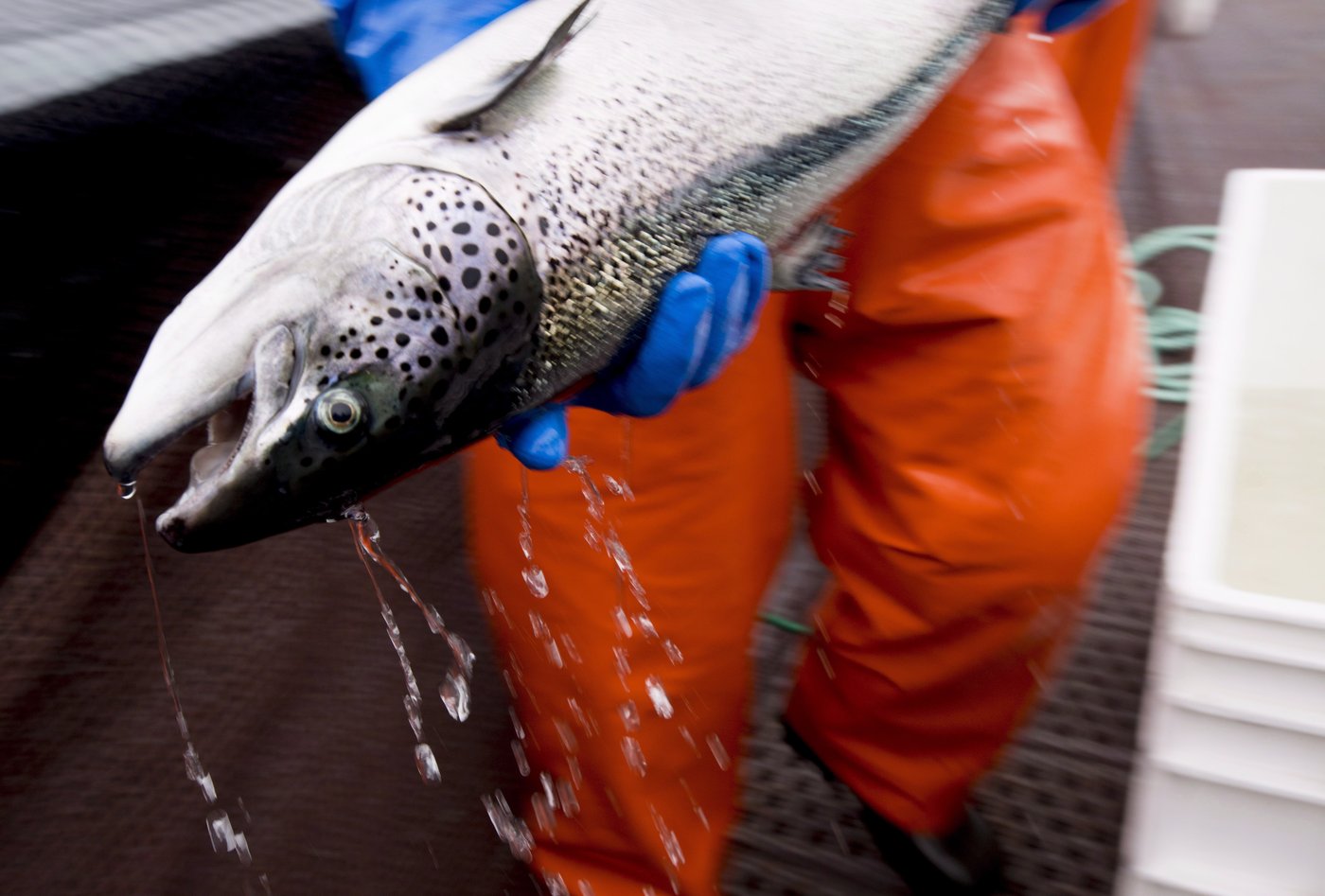Elevate your local knowledge
Sign up for the iNFOnews newsletter today!
Sign up for the iNFOnews newsletter today!
Selecting your primary region ensures you get the stories that matter to you first.

VANCOUVER — First Nations in British Columbia are calling for a meeting with Prime Minister Mark Carney to discuss protecting and reviving wild salmon.
Bob Chamberlin, chair of the First Nations Wild Salmon Alliance, which includes more than 120 First Nations, said the federal government should create a First Nation-led plan to protect the wild fish, similar to the joint land use plan for governing the Great Bear Rainforest.
“We call on Prime Minister Carney to come and meet with us in British Columbia, where we can discuss the rehabilitation and rebuilding of wild salmon of British Columbia as a nation building project,” he said at a news conference on Monday.
“One that is not extractive in nature, one that works to accommodate Aboriginal rights, reconciliation, benefits the environment and the fulsome economy that depends on wild salmon.”
Chamberlin said he’s nervous the federal government might not follow through on its promise to ban open-net salmon farms by 2029, after initially rolling back plans for the ban to be in place by 2025.
Salmon farmers have pushed back against the ban, saying the industry supports about 4,700 jobs and generates more than $1 billion annually, and the closures will hurt coastal communities.
Chamberlin said the salmon farming industry has money to lobby Ottawa.
“We don’t have deep pockets. We have Aboriginal rights. We have inherent rights, and if they were looked after appropriately by the federal and provincial Crown, it would be a benefit to all First Nations and British Columbians,” he said.
The Coalition for First Nations Finfish Stewardship, which represents some B.C. coastal First Nations with salmon farming operations, said in a separate statement Monday that the group supports the choice to continue salmon farming on their traditional territories.
They say the First Nations Wild Salmon Alliance does not speak for them.
“The reality is quite simple: Canada cannot afford, economically, socially, or morally, to shut down a modern, sustainable, Indigenous-led industry in the face of growing food insecurity, global trade instability, and a worsening housing crisis,” the statement said.
The statement said the coalition expects “the federal government will honour their commitments to a true Nation-to-Nation process.”
This year B.C. saw a bumper run of sockeye on the Fraser River that the joint Canada-US Pacific Salmon Commission predicted would be 9.1 million fish, making it the biggest return since 2018.
Don Svanvik, hereditary chief of the Namgis Nation, told the news conference that fish are coming back after the removal of farms from the Broughton Archipelago, though there is still work to be done.
“Look at the happiness that happened in particular this year, in regard to the unexpected, by some, return of the sockeye. The Namgis were able to deliver 15 sockeye (each) to over 550 households,” he said.
“More than half of those were off the reserve. So again, people were learning how, teaching their children how, to process fish.”
Chamberlin said working with First Nations to protect salmon would allow the government to implement recommendations from the Truth and Reconciliation Commission for the need to rebuild Indigenous opportunities in culture, traditions, and the attachment to land.
He said the alliance has been told that a report on the open-net ban is coming, but hasn’t been given details.
“I’ve reached out and had meetings with people inside the fisheries minister’s office, asking, when can we know what the next steps are? And they are unable to report to us where we’re going next,” he said.
Chamberlin sent a letter to the Prime Minster’s Office in August asking for the meeting with Carney and Fisheries Minister Joanne Thompson, but he says he has not heard back yet.
“We urge this government to uphold the previous decision to ban of open-net pen fish farms by 2029, embracing an approach that would see such farms removed from coastal waters in the Pacific region and prioritizes our environment and an iconic wild salmon species over economic growth,” the letter says.
A statement from the Fisheries Department said Thompson plans to meet with the First Nation Wild Salmon Alliance in October. But it referred any questions about the phase out of open-net salmon farming to Innovation, Science and Economic Development Canada.
This report by The Canadian Press was first published Sept. 29, 2025
This site is protected by reCAPTCHA and the Google Privacy Policy and Terms of Service apply.
Want to share your thoughts, add context, or connect with others in your community?
You must be logged in to post a comment.